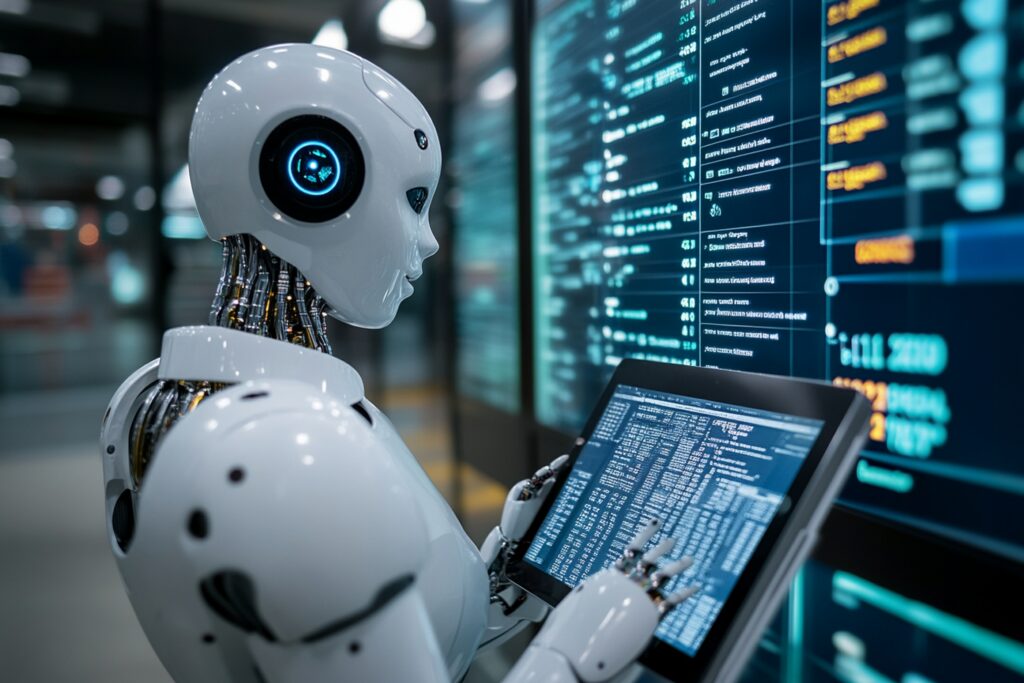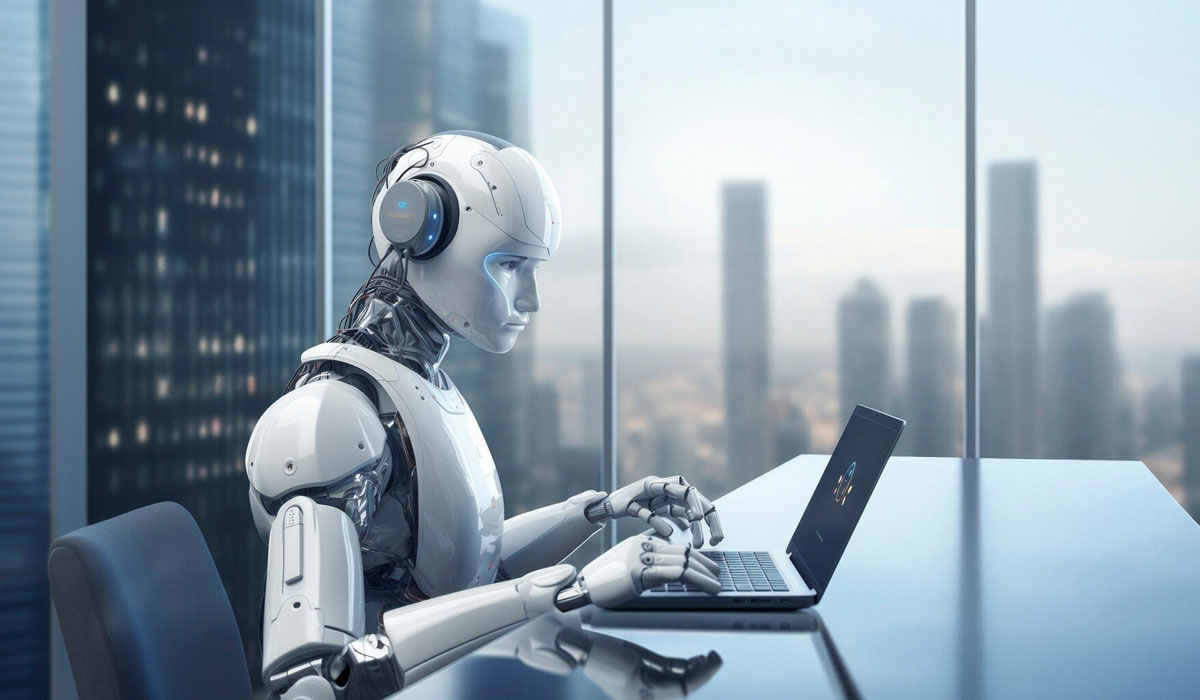Artificial Intelligence (AI) has become an essential tool for businesses looking to streamline operations, increase efficiency, and reduce costs. The role of AI in cost reduction spans multiple sectors, helping companies save money in areas such as labor, energy, time, and resources. By automating repetitive tasks, optimizing workflows, and delivering data-driven insights, AI helps businesses operate smarter and leaner.
In this in-depth article, we’ll explore how AI is helping businesses reduce costs across various industries and operations, from customer service to supply chain management and everything in between.
1. AI-Powered Automation: Reducing Labor Costs
One of the most direct ways AI can reduce business costs is through automation. By taking over repetitive, time-consuming tasks that were previously done by human workers, AI allows businesses to allocate their workforce to more value-added activities.
Repetitive Task Automation
Many businesses spend significant resources on routine tasks like data entry, document management, or simple customer service inquiries. AI-powered tools, such as robotic process automation (RPA) or AI-driven chatbots, can handle these tasks efficiently without human intervention, significantly reducing labor costs.
For example, instead of hiring a large customer service team to handle FAQs, businesses can deploy AI chatbots to manage simple inquiries. This reduces the need for staffing while improving response times, enhancing the customer experience at a lower cost.
Workforce Efficiency
AI can also assist employees by automating parts of their work, allowing them to focus on tasks that require more creativity or human judgment. Tools like AI-driven project management systems can optimize workflows, ensuring employees are working on the most important tasks and avoiding inefficiencies.
2. AI in Supply Chain Optimization: Saving on Logistics and Inventory Management
Supply chain management is another area where AI plays a crucial role in reducing business costs. Efficiently managing inventory, logistics, and transportation can save businesses significant amounts of money.
Predictive Analytics for Inventory Management
AI-driven predictive analytics can forecast demand more accurately, allowing businesses to maintain optimal inventory levels. This helps reduce the costs associated with overstocking or understocking products, which can lead to lost sales or excess inventory holding costs. By analyzing historical sales data and market trends, AI can predict when demand will spike and help businesses prepare accordingly.
Route Optimization and Smart Logistics
AI is also improving logistics by optimizing transportation routes, and cutting down on fuel consumption and delivery times. AI algorithms can analyze traffic patterns, weather conditions, and other factors to ensure that shipments take the most efficient routes, reducing fuel costs and minimizing delays.
For example, companies like UPS use AI-powered route optimization software to save millions in fuel and labor costs by determining the most efficient delivery routes for their drivers.
3. AI in Energy Efficiency: Reducing Operational Costs
Energy consumption is a significant cost for many businesses, especially in industries like manufacturing, retail, and data centers. AI is helping businesses reduce energy costs by optimizing energy usage and improving efficiency.
Smart Energy Management Systems
AI-powered energy management systems can monitor and control energy usage in real-time, optimizing heating, cooling, and lighting systems to reduce waste. These systems can learn from patterns in energy consumption and adjust settings based on factors like time of day, occupancy, and weather conditions. By optimizing energy use, businesses can significantly cut down on utility bills.
Predictive Maintenance for Energy-Intensive Equipment
In industries where heavy machinery is used, AI-powered predictive maintenance tools help reduce energy consumption by ensuring that machines are operating efficiently. These tools analyze data from equipment sensors to predict when machines are likely to fail or become inefficient, allowing businesses to perform maintenance before costly breakdowns occur. This not only reduces repair costs but also minimizes energy waste.
4. AI in Marketing: Reducing Advertising Costs and Increasing ROI
Marketing is another area where AI is having a transformative impact on cost reduction. AI tools help businesses make better decisions on where and how to spend their marketing budgets, resulting in more effective campaigns and reduced advertising costs.
Targeted Advertising and Personalization
AI helps businesses run more cost-effective advertising campaigns by targeting the right audience with the right message. Instead of wasting money on broad, generic ads, AI algorithms analyze consumer behavior and preferences to deliver personalized ads that are more likely to convert. This means businesses can reduce their advertising spend while increasing the return on investment (ROI).
For example, platforms like Google Ads and Facebook Ads use AI to automatically optimize ad targeting and bidding strategies, ensuring businesses spend their marketing budget more efficiently.
AI-Driven Content Creation
AI is also making it easier for businesses to create content at scale without the need for large creative teams. Tools like AI-powered copywriting and video editing software can produce engaging marketing content quickly and at a fraction of the cost of traditional methods.
5. AI in Customer Service: Cutting Costs with Chatbots and Virtual Assistants
Customer service can be expensive, especially for businesses that deal with high volumes of inquiries or support requests. AI-powered chatbots and virtual assistants are helping businesses reduce customer service costs while maintaining high levels of service quality.
AI Chatbots for Instant Customer Support
AI chatbots can handle a wide range of customer inquiries, from answering FAQs to processing orders or troubleshooting issues. This reduces the need for large customer support teams and allows businesses to offer 24/7 support at a much lower cost. Chatbots can also scale easily to handle increasing customer demand, ensuring that businesses don’t have to hire additional staff during peak times.
Virtual Assistants for Complex Inquiries
For more complex customer inquiries, AI-powered virtual assistants can provide personalized support by analyzing customer data and offering tailored solutions. These virtual assistants can work alongside human agents, handling routine tasks while allowing human agents to focus on more complex issues, ultimately reducing staffing costs.
6. AI in Financial Management: Improving Accuracy and Reducing Errors
AI is revolutionizing financial management by automating tasks that were previously done manually, reducing errors, and improving efficiency.
Automated Bookkeeping and Invoicing
AI-powered accounting software can automate bookkeeping tasks, such as categorizing expenses, reconciling bank statements, and generating financial reports. This not only saves time but also reduces the risk of human error, which can lead to costly mistakes. Businesses can save on labor costs by reducing the need for a large accounting team, while also improving the accuracy of their financial records.
Fraud Detection and Prevention
AI is also helping businesses save money by reducing the risk of fraud. AI algorithms can analyze financial transactions in real-time to detect unusual patterns that may indicate fraudulent activity. By identifying potential fraud early, businesses can prevent losses and reduce the costs associated with fraud detection and investigation.
7. AI in Product Development: Reducing Time to Market
AI is helping businesses reduce the costs associated with product development by speeding up the innovation process and improving efficiency.
AI-Driven Product Design and Prototyping
AI-powered design tools can help businesses create product prototypes more quickly and at a lower cost. These tools use algorithms to analyze data and generate design options that meet specific criteria, reducing the need for multiple iterations and manual adjustments. This shortens the time it takes to bring a new product to market, allowing businesses to capitalize on market opportunities more quickly.
AI for Market Research and Testing
AI can also streamline the process of market research and product testing. Instead of relying on traditional surveys or focus groups, businesses can use AI to analyze social media trends, customer reviews, and other data sources to gain insights into consumer preferences. This helps businesses make more informed decisions about product development, reducing the risk of costly mistakes.
8. AI in Human Resources: Reducing Recruitment and Training Costs
Human resources (HR) is another area where AI is helping businesses reduce costs by automating recruitment and training processes.
AI for Candidate Screening and Recruitment
AI-powered HR tools can automate the process of screening job candidates, reducing the time and resources required for recruitment. These tools use algorithms to analyze resumes, identify the best candidates, and even conduct initial interviews through AI-driven chatbots. By streamlining the hiring process, businesses can save on recruitment costs and reduce the time it takes to fill open positions.
AI-Powered Employee Training
AI is also making employee training more efficient by providing personalized learning experiences. AI-powered training platforms can assess employees’ skills and tailor training programs to their specific needs. This reduces the costs associated with traditional, one-size-fits-all training programs and ensures that employees receive the training they need to perform their jobs effectively.
9. AI in Data Analysis: Reducing Research Costs
Data analysis is a critical component of many business operations, from marketing to product development to financial management. AI is helping businesses reduce the costs associated with data analysis by automating the process and providing faster, more accurate insights.
AI for Real-Time Data Analysis
AI-powered data analysis tools can process large amounts of data in real time, providing businesses with actionable insights faster than traditional methods. This allows businesses to make data-driven decisions more quickly, reducing the time and resources spent on research and analysis.
AI for Predictive Analytics
AI is also helping businesses save money by providing predictive analytics, which can forecast future trends and outcomes. This allows businesses to make proactive decisions, such as adjusting inventory levels or marketing strategies, reducing the risk of costly mistakes.
10. The Long-Term Cost Benefits of AI
While AI requires an initial investment, the long-term cost benefits far outweigh the upfront costs. By automating processes, improving efficiency, and providing data-driven insights, AI helps businesses reduce their operational costs, improve profitability, and remain competitive in an increasingly digital world.
Scalability and Flexibility
One of the key advantages of AI is its scalability. As businesses grow, AI tools can scale with them, allowing for continued cost savings without the need for significant additional investments. AI systems can also adapt to changing business needs, providing the flexibility that businesses need to remain agile in a rapidly evolving market.




